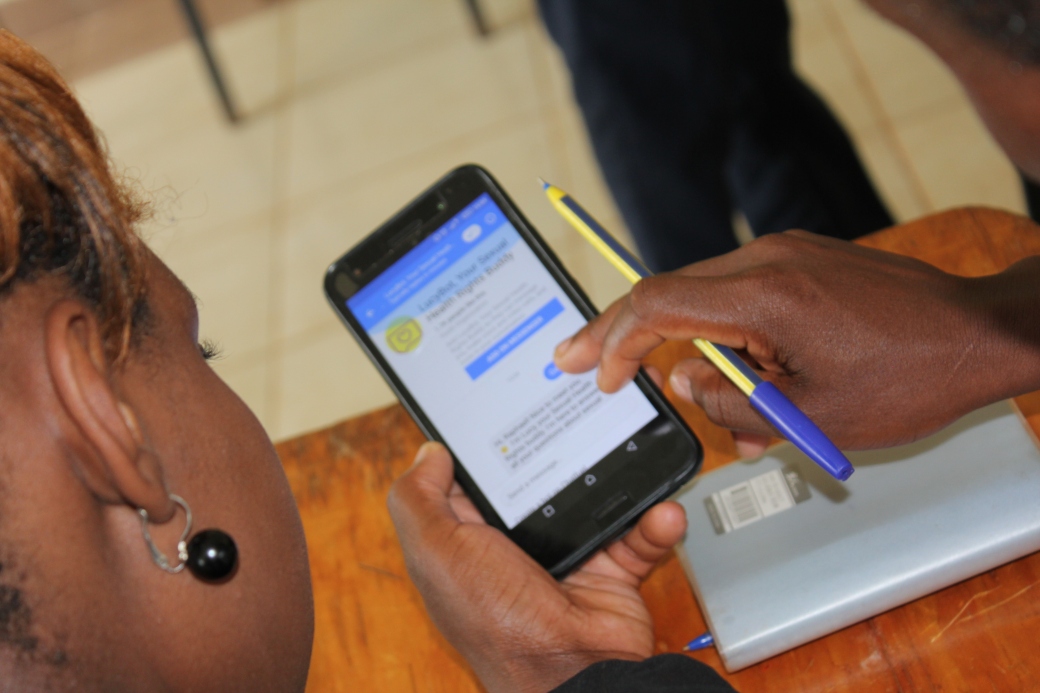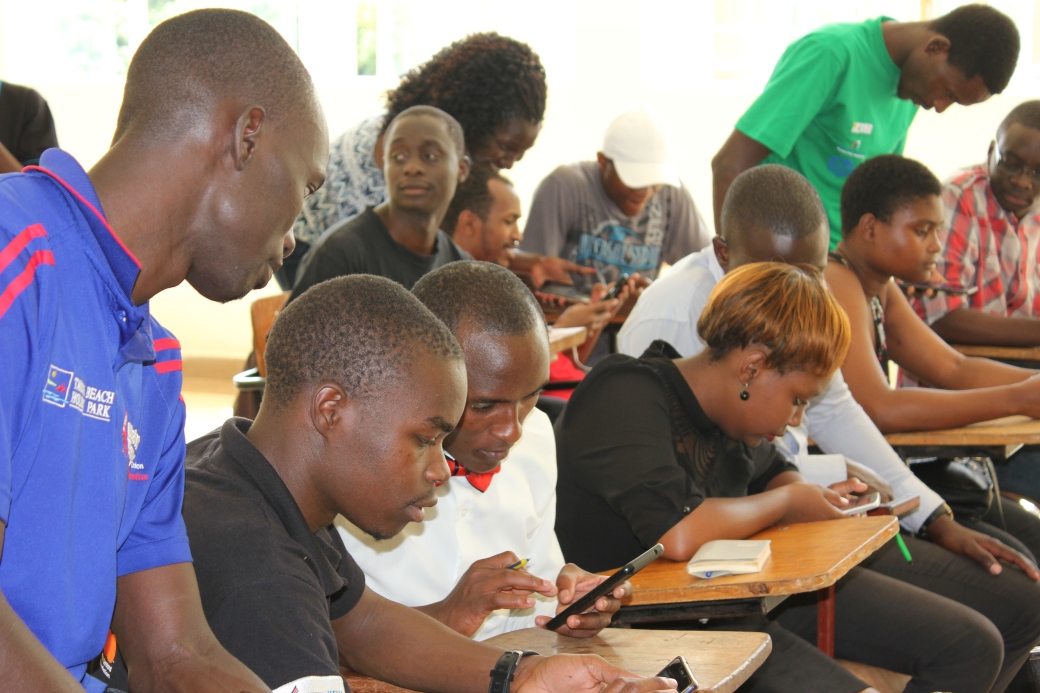Growing up in rural Kenya, Nick Oketch became acutely aware of how differently women and men were treated there.
In his small village in Siaya County, which is in the western part of Kenya, things like forced arranged marriages, wife battering, and polygamy were commonplace. Oketch’s own two sisters were married off when they were only 12-years-old.
It wasn’t hard for him to see how all these patriarchal practices undermined young women’s development, and stifled their ability to become empowered.
This oppressive environment also didn’t provide adolescents with many outlets where they could learn about reproductive healthcare. So unsurprisingly, Siaya County has the second highest HIV prevalence rates out of Kenya’s 47 counties.
When Oketch made that connection, he knew he had to do something to help break the cycle.
“I had always been dreaming of a world where each and every person has the freedom to exercise their reproductive health rights without discrimination or stigmatization,” writes Oketch in an email.
So in 2008, as a senior in high school, he launched the Paradigm Youth Network Organization, a nonprofit dedicated to advocating for the sexual, legal, social, and cultural rights of marginalized women, children, and men in Kenya. By challenging outdated societal traditions and attitudes, it aims to build a safer environment for the people of Kenya, especially the marginalized groups who are most threatened by the status quo.
The organization offers services like training and empowerment workshops, access to reproductive health information, and support for communities who may not have access to sexual and reproductive healthcare.
And since adolescents are the most at risk when it comes to the effects of lacking sexual and reproductive health and rights (SRHR), Paradigm targets them specifically. They’ve reached over 8,000 adolescents to date.
However, sexual health is a delicate subject, and Oketch knew there were many more youths who were afraid to ask for help. So he utilized technology and social media to bridge that gap.
He named his creation LucyBot. LucyBot is a bot that lives in Facebook Messenger and offers sexual and reproductive health information and advice to young people who might otherwise not seek it out. She’s filled with verified facts that she then relays to users who can ask her whatever questions they might have on the subject.

LucyBot User
Oketch actually developed the idea out of conversations he had with leaders from Women Deliver — a nonprofit that bolsters people who are fighting for gender equality and focused on SRHR — of which he is also a member.
“Chatting with Lucy is just like chatting with any other friend on the platform [except she’s probably much more knowledgable], and it is important for us to make the user experience fun and informative,” explains Oketch.
So far, LucyBot’s reached over 1,5000 Kenyan adolescents, and it’s still only in beta testing.
LucyBot is now in final stages of development, but the last test is perhaps the most important one.

University Students Interacting with LucyBot
They’re testing her on 1,000 students from three counties in Kenya through a project called the `De-stigmatizing Sex Education in Kenya through Artificial Intelligence (AI) Initiative.’ The project involves training 30 other students to conduct research and perform community outreach to gather a range of questions that adolescents might ask LucyBot. They’ll then populate the bot with as much relevant information as possible, and see if she’s able to answer the 1,000 students’ questions satisfactorily.
If all goes according to plan, they’ll officially launch, targeting the 18-25 demographic via Facebook and other media campaigns.
Oketch’s hope is that LucyBot will encourage adolescents to speak up and demand the sexual and reproductive healthcare and rights they deserve, but he also recognizes the responsibility shouldn’t all be on them.
“We need to work on training the health workers to create a friendly environment in the health facilities so that young people can be more comfortable visiting to get the services they need,” he writes.
“Also parents should be enlightened to be more free in talking about reproductive health topics to their adolescent children, so that they don’t resort to getting information from peers which can be misleading.”
While LucyBot is poised to make a huge difference in the lives of Kenyan adolescents, many in rural Kenya don’t have regular access to the internet. So Paradigm’s doing something about that, too.
“We are starting a youth resource center with computers and mobile phones to ensure that youths who don’t have mobile phones or internet can interact with LucyBot for free,” explains Oketch. They’re currently running a fundraiser to help pay for the equipment. (You can donate to it here.)
In the meantime, Oketch is continuing to advocate for sexual and reproductive health and rights by imploring policymakers to improve access to family planning options for Kenyans in rural areas.
On the ground, he’s aiming to positively impact the sexual and reproductive health of 2,000 Kenyans each year. And now that he’s got an innovative information bot in his corner, he should have no problem reaching his goal.

0 comments:
Post a Comment